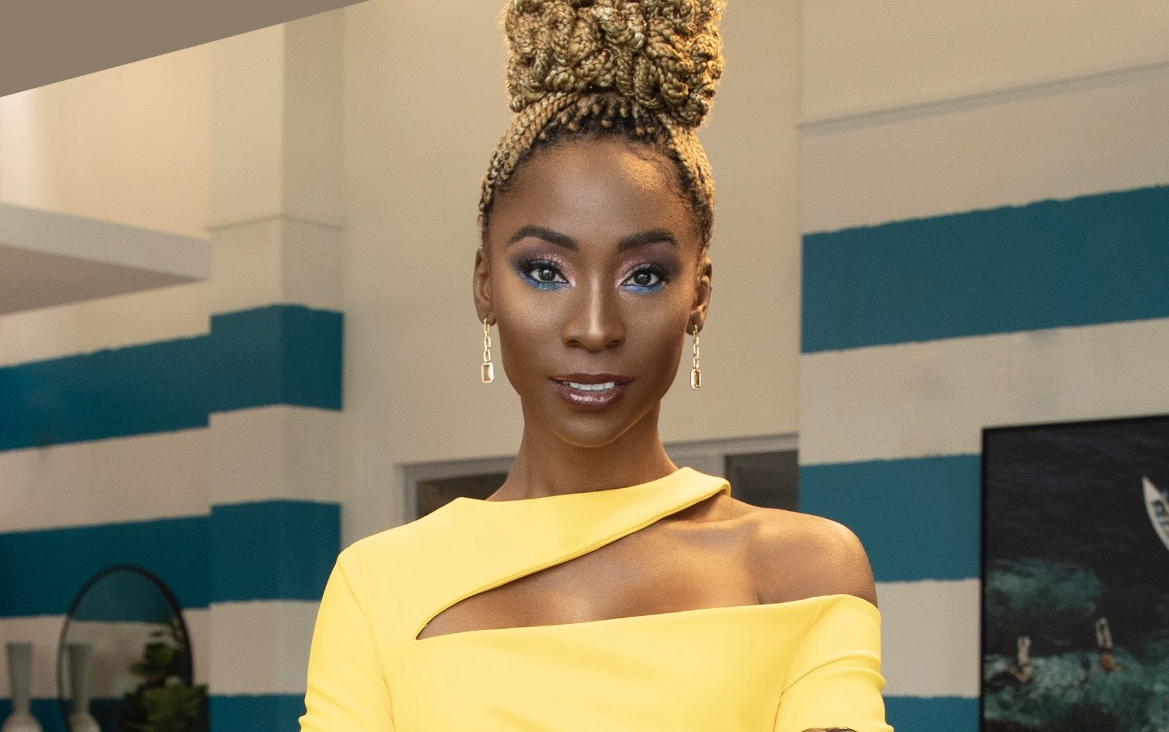The CBC original series Sort Of has returned for its third and final season with Sabi Mehboob (Bilal Baig) coming to terms with grief and an unexpected sense of freedom. Sabi is confronting big questions about their identity. And like a fairy godmother guiding Sabi on their journey, actress, musician and human rights advocate Angelica Ross guest stars as Dr. C, a gender-affirming specialist whom Sabi seeks out.
“Transition is definitely a journey,” Ross says. “It’s one that we all go through, whether we’re trans, cis, non-binary or not. Some of us like to resist it or try to be in denial. But what transition has taught me most is that the more comfortable you get with change, the more beautiful the experience becomes. As the saying goes, ‘Count it all joy.’ It’s really not a cliché,” she tells Xtra.
In an early-morning phone call, Ross discusses her role as Dr. C, how working as a sex worker informed her activism and an intriguing new film project.
After binge-watching the first and second seasons, Ross says she was “extremely honoured” to be asked to be a part of the final season of Sort Of. “I thought it was great for me to come and just be able to play any role in [Sabi’s] development. They are making a big decision to start with medical transition, at least considering hormones.” Ross jumped at the chance to play a trans doctor. “We don’t often have someone who is trans on the other side, who is talking from lived experience, and not just someone who’s a gatekeeper between us and the access to the medical care that we need,” she says.
Ross says she knows a few trans doctors, which helped her determine the best way to depict Dr. C. Her character is wise, composed and, honestly, the ideal medical professional any queer person could hope for. Ross’s Dr. C offers sound advice to Sabi on the importance of having a support system when considering this significant, life-altering decision.

Angelica Ross guest stars as Dr. C on “Sort Of.” Credit: Courtesy of CBC Gem
“Life is hard, and it’s not for the faint of heart,” she says. “And you [need] people who can advise you and give guidance to say, ‘Hey, don’t go this route, go this way.’” (Ross guest stars in Episode 3, airing Nov. 24 on CBC Gem in Canada and Max in the U.S.)
The power of community for queer folks is the foundation on which Ross stands, through the guidance of her drag mother, Traci Ross, from whom she got her last name. Traci Ross initially kept Angelica, a young egg in Milwaukee, Wisconsin, off the street, helping her find jobs doing drag shows and working at the bars. But Ross eventually found herself trafficked into sex work. “I know that that’s not the dream that many trans people have had for their lives, but it has sometimes been our path to our personhood,” Ross says. Her drag mother counselled her “to stay above the fray,” as people can get lost in the lifestyle, whether to drugs or sex as survival or coping mechanisms.
“So when you have chosen family and good friends, it might be a little less lonely. You know what I mean? It will still be challenging, but it is a little less lonely when you have community,” Ross says.
Knowing sex work was not the life she wanted for herself, Ross started running adult websites instead of posing for them. Then, in 2014, she founded TransTech Social as a blueprint for people in the LGBTQ2S+ community to find their way to succeed on their terms, rather than anybody else’s. When discussing TransTech, Ross beams with joy and pride at the organization’s upcoming 10th anniversary.
About two to three years ago, she passed the baton on to E.C. Pizarro III, the current executive director. “They have been able to do so many great things, giving scholarships to our members to get technical training, working with folks like Google and Linux, as well as Chase Bank and various partners with our upcoming TransTech Summit,” she says.
At the virtual summit in March 2024, free for anyone to attend worldwide, participants can learn everything from coding and graphic design to technology basics. There’s also a job fair component to create a pipeline for employment with their corporate partners. Beyond the technical resources, attendees can find community, potentially returning as trainers for the next cohort, adding to an ever-growing network of LGBTQ2S+ folks in tech. Still in the planning stages, the summit will also feature some in-person events at a Georgia location to be determined.
“Transition is all about becoming; it’s all about blossoming.”
In addition to tech education, Ross is expanding her behind-the-scenes portfolio with a growing number of executive producer credits. The latest is an indie animated Black superhero short film called Captain Zero, created by non-binary Haitian-American Lamard Cher-Aimé. It will star Ross along with Keith David, Zolee Griggs, Coty Galloway and Marion Toro.
“I’m super excited about it. It’s an important story about a superhero battling his own demons and mental health issues. I, by chance, ran into Lamard on Twitter (X), and I was like, ‘What is this? I want to be a part of this.’ I introduced them to my agents, who are now their agents, and came on and started connecting the dots,” she says.
The project adds another notch to her executive-producing belt, alongside the 2017 short film Missed Connections and the Daytime Emmy-nominated web series King Ester from 2019.
Ross has experienced various chapters of life, leaning into the journey that is transition, allowing herself to evolve and grow to meet each new moment she’s faced. When asked what advice she’d give to anyone going through a transition in life, Ross left Xtra with these words of wisdom:
“Learn to let go when transition is happening. You have to let go of what you think and your comfort. You have to let go sometimes of friends and family. And again, these are not hard, fast rules. But sometimes you’re going to have to let go of something when you change from one thing to another. So being in practice of letting go will help make your transition smoother. Letting go of expectations of what it’s supposed to look and feel like.
“I want folks to understand that transition is all about becoming; it’s all about blossoming. So it’s not about becoming something you’re not; it’s about becoming more of who you already are and bringing that out.”


 Why you can trust Xtra
Why you can trust Xtra


